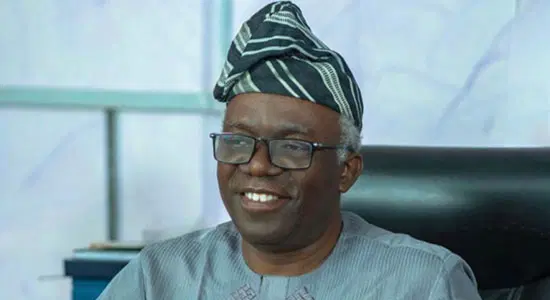In a letter to the Speaker of the House of Representatives, renowned human rights lawyer and Senior Advocate of Nigeria (SAN) Femi Falana has urged for immediate legislative reforms to solidify the roles of the Economic and Financial Crimes Commission (EFCC) and the Independent Corrupt Practices and Other Offences Commission (ICPC) within the Nigerian Constitution.
The letter, titled “Urgent Legislative Attention on Constitutional Reforms Relating to Law Enforcement Agencies and Anti-Corruption Efforts,” stresses the need to eliminate legal controversies surrounding the agencies’ existence and empower them to more effectively combat corruption in the country.
Falana’s appeal follows recent debates, particularly from legal scholar Dr. Olisa Agbakoba, who questioned the constitutionality of the EFCC, asserting that the National Assembly exceeded its powers in establishing the agency, thus violating federalism principles. However, Falana countered these assertions by referencing multiple Supreme Court rulings that have affirmed the legality of the EFCC and its mandate to combat economic crimes at both federal and state levels.
He cited the landmark case of Attorney-General of Ondo State v Attorney-General of the Federation, where the Supreme Court validated the establishment of the ICPC, affirming the National Assembly’s authority to create bodies to combat corruption as per Section 15(5) of the 1999 Constitution. Additionally, he referred to the case of Nyame v Federal Republic of Nigeria, which established the EFCC’s constitutional right to investigate and prosecute individuals suspected of economic and financial crimes.
Falana urged the National Assembly to take advantage of ongoing constitutional reforms to enshrine the EFCC and ICPC in the Constitution, thereby safeguarding their functions from future legal challenges. He expressed concern over efforts by some state governments and officials to undermine these anti-corruption bodies, whether by questioning their authority or obtaining court injunctions to halt investigations and prosecutions.
“In light of the duty imposed on the State by Section 15(5) of the Constitution to abolish corrupt practices, it is imperative to safeguard the powers of the EFCC and ICPC as ‘common agencies’ of the people of Nigeria in combating corruption and financial crimes,” Falana stated.

